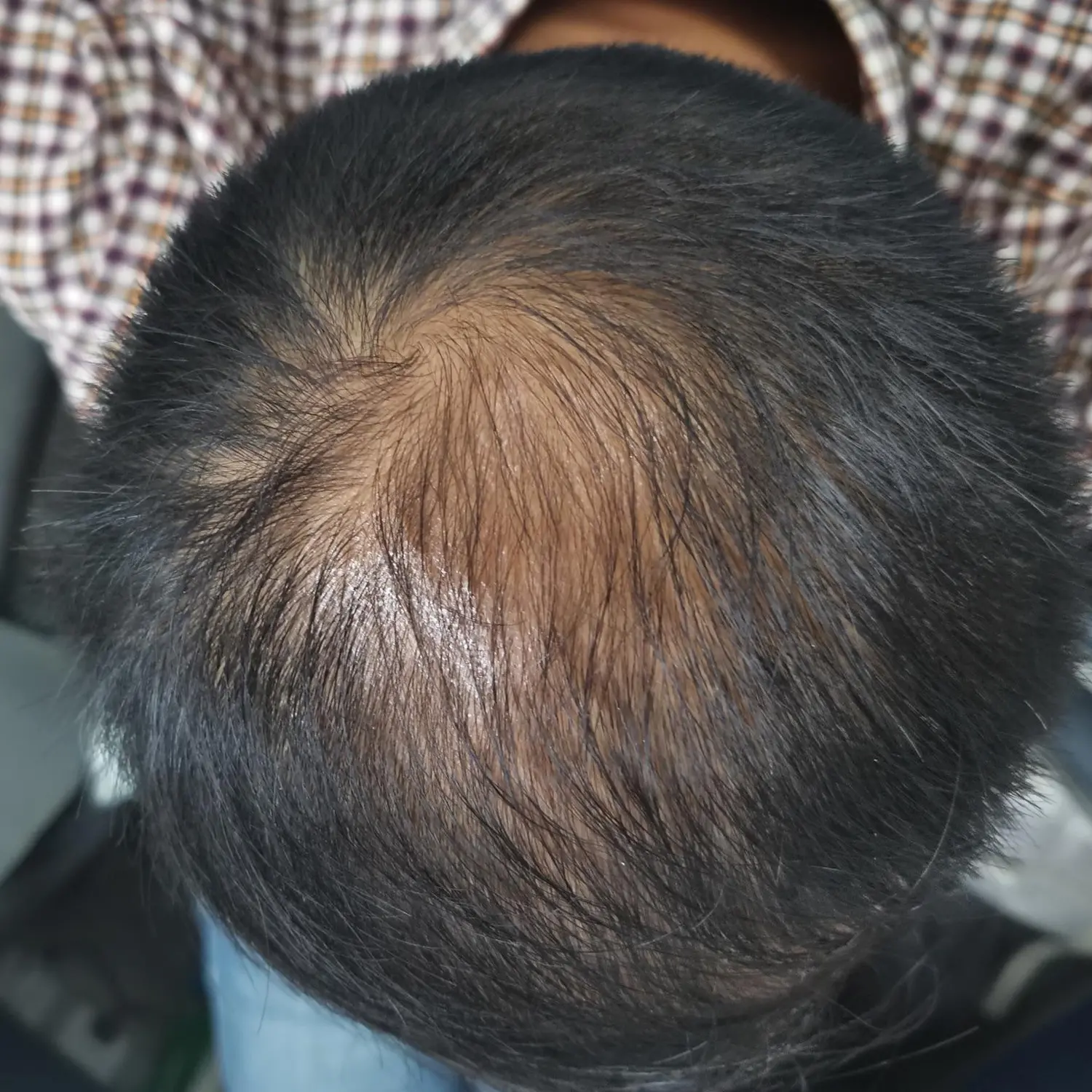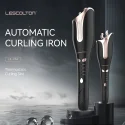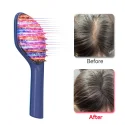2024-03-28
Hair loss is a common concern that affects millions of people worldwide, irrespective of age or gender. While it is often associated with aging, various factors contribute to this phenomenon, ranging from genetics to lifestyle choices. Understanding the science behind hair loss is crucial in developing effective strategies to address and manage this issue.

The Hair Growth Cycle
Before delving into the causes of hair loss, it's essential to grasp the basics of the hair growth cycle. Hair growth occurs in three phases:
-
Anagen Phase: This is the active growth phase where hair follicles produce new hair. It typically lasts between two to seven years and determines the length of your hair.
-
Catagen Phase: In this transitional phase, hair growth slows down, and the hair follicle shrinks. This phase lasts for about two weeks.
-
Telogen Phase: Also known as the resting phase, hair follicles are inactive during this period. Old hair is shed to make way for new hair growth. The telogen phase lasts around three to four months.
After the telogen phase, the cycle repeats, starting again with the anagen phase. However, disruptions in this cycle can lead to hair loss.
Causes of Hair Loss
-
Genetics (Androgenetic Alopecia): One of the most common causes of hair loss is hereditary factors. Androgenetic alopecia, also known as male or female pattern baldness, is inherited from family members. It results in a gradual reduction in hair thickness and volume, typically starting at the temples or crown of the head.
-
Hormonal Changes: Hormonal fluctuations can trigger hair loss. For instance, during pregnancy, childbirth, or menopause, women may experience hair thinning due to changes in estrogen and progesterone levels. Similarly, hormonal imbalances in conditions like polycystic ovary syndrome (PCOS) can contribute to hair loss.
-
Medical Conditions: Certain medical conditions and treatments can cause hair loss as a side effect. These include thyroid disorders, autoimmune diseases like alopecia areata, and chemotherapy for cancer treatment. Hair loss in these cases is often temporary and may improve with proper medical management.
-
Stress and Diet: Chronic stress, poor nutrition, crash diets, and deficiencies in essential vitamins and minerals (such as iron, vitamin D, and biotin) can impact hair health and contribute to hair loss. Maintaining a balanced diet and managing stress levels are crucial for overall well-being, including healthy hair growth.
-
Hair Care Practices: Overuse of harsh hair treatments, excessive heat styling, tight hairstyles (like ponytails or braids), and improper hair care routines can damage hair follicles and lead to hair loss over time.
Solutions and Management
-
Medical Treatments: For hereditary hair loss, medications like minoxidil (Rogaine) and finasteride (Propecia) are commonly prescribed to stimulate hair growth and prevent further loss. Consultation with a dermatologist or healthcare provider is essential to determine the most suitable treatment option.
-
Lifestyle Changes: Adopting a balanced diet rich in nutrients, managing stress through relaxation techniques or therapy, and practicing gentle hair care can significantly improve hair health and reduce hair loss.
-
Hair Care Products: Using mild, nourishing hair care products free from harsh chemicals can help maintain the integrity of your hair and scalp. Look for products containing ingredients like biotin, keratin, and essential oils known for promoting hair growth.
-
Hair Restoration Therapies: Advanced treatments such as platelet-rich plasma (PRP) therapy, laser therapy, and hair transplants offer options for individuals seeking more intensive solutions for hair loss.
Conclusion
While hair loss can be distressing, understanding its underlying causes empowers individuals to take proactive steps towards prevention and management. Whether it's addressing genetic predispositions, adopting healthy lifestyle practices, or exploring medical interventions, there are various avenues available to support healthy hair growth and restore confidence. Consulting with healthcare professionals and adopting a holistic approach to hair care are key factors in addressing hair loss effectively.
Hoe een haarkrulmachine te gebruiken: een stapsgewijze gids voor perfecte krullen
Mythen ontmaskeren en waarheden onthullen: de werkzaamheid van laserhelmen voor haarverlies










